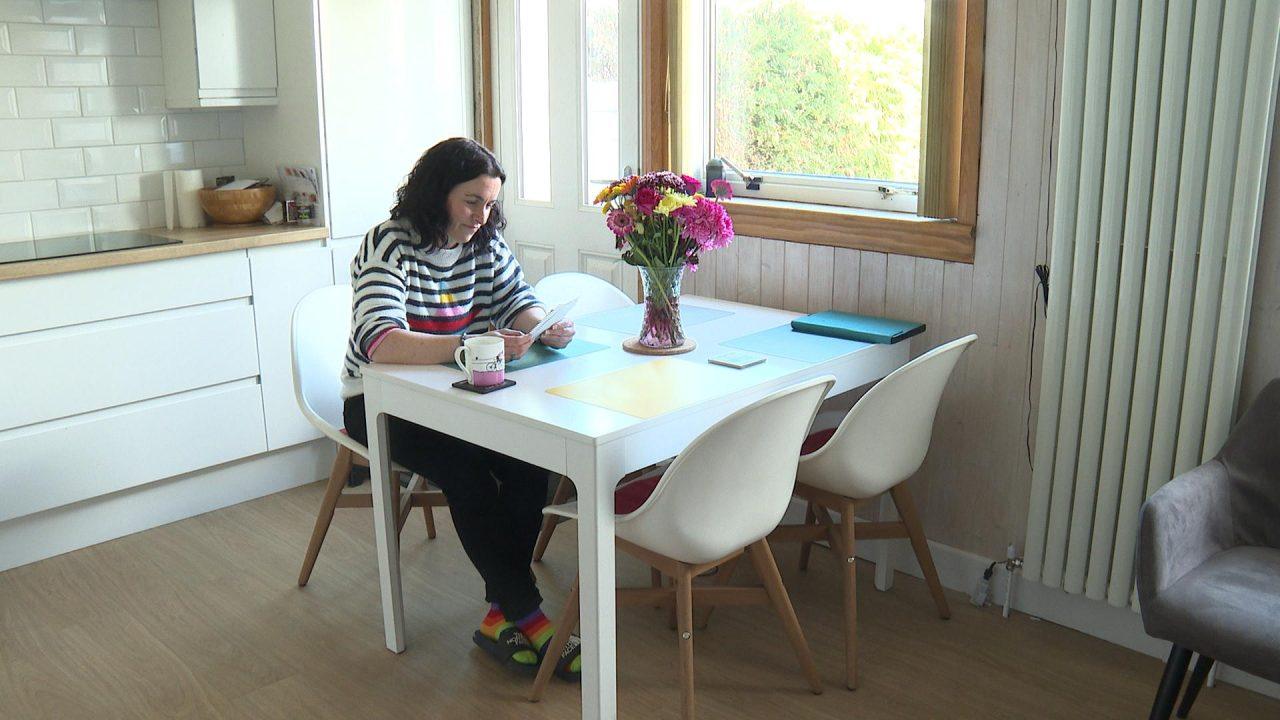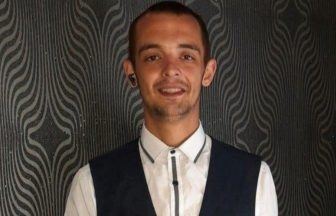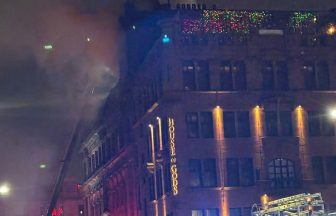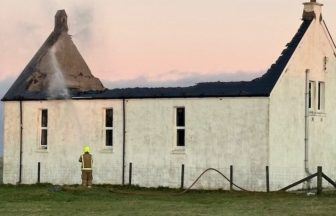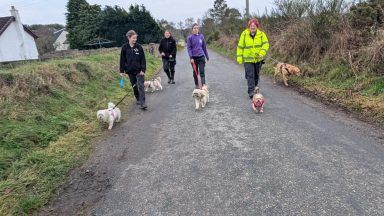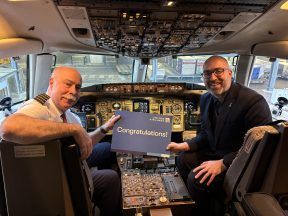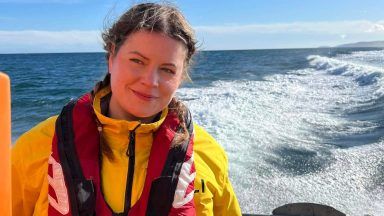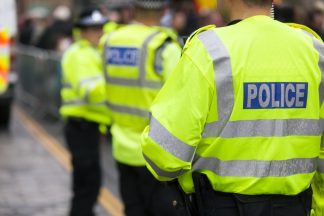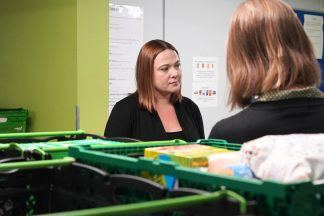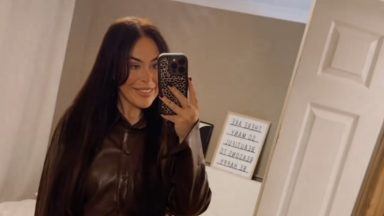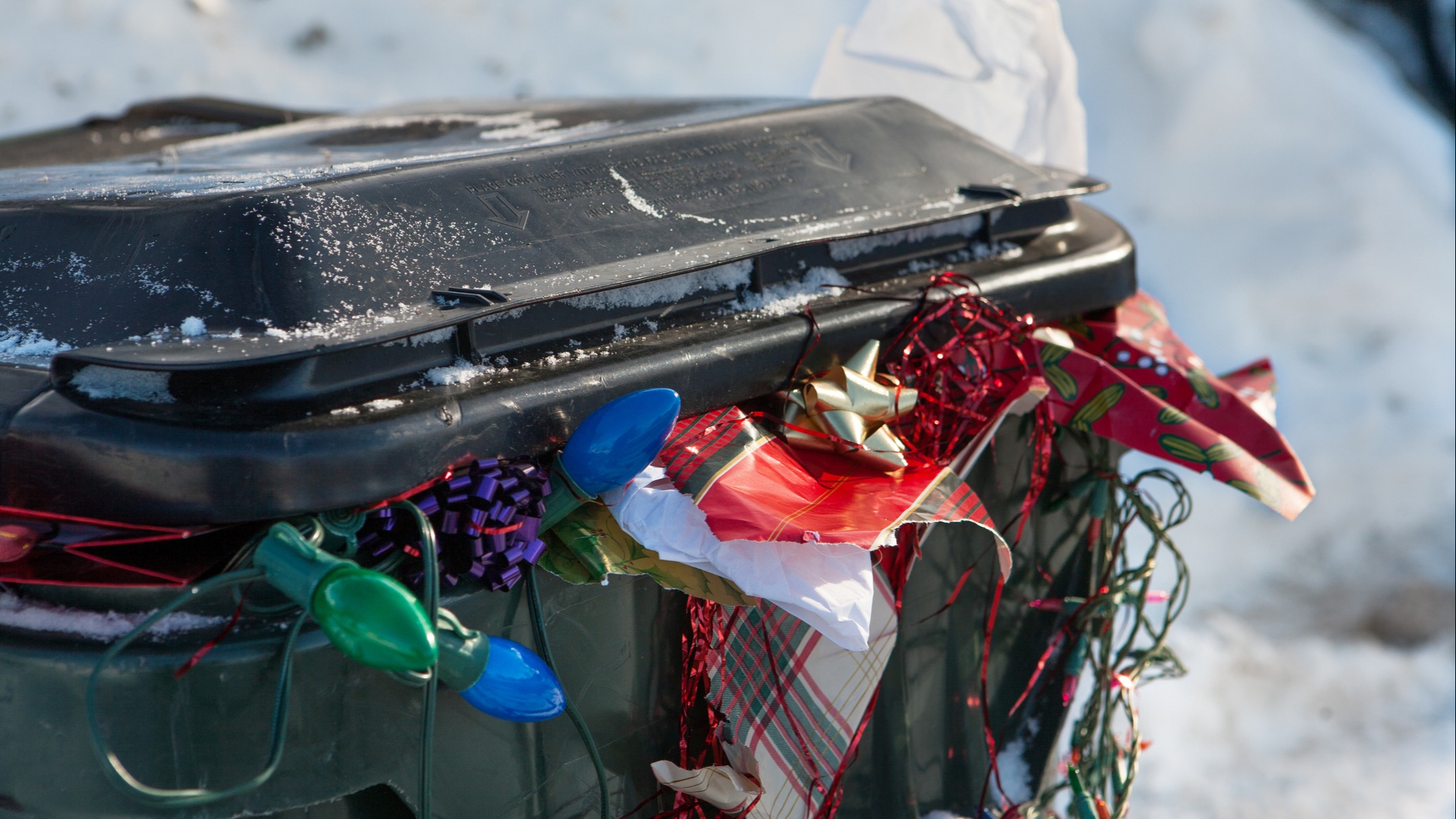The mum of a teenage boy forced to interpret for a GP while he gave an update on her father’s cancer care is calling for better support for deaf people in healthcare.
Sophia Cumming’s late father became unwell in early 2020 and was diagnosed with mesothelioma – associated with exposure to asbestos – at the beginning of lockdown.
As his condition deteriorated further, his daughter struggled to understand what was happening.
On a home visit by the doctor, no British sign language (BSL) interpreter had been arranged, so her son was asked to step in.
She told STV News the experience made her feel “invisible”.
“My father was going through a very difficult situation, and I felt like you shouldn’t put that level of responsibility on a young man,” she said.

“It should become second nature that when they know they’re meeting a deaf person, they should make steps to arrange an interpreter.”
Sophia, from South Queensferry, regrets letting her son be put in that position but feels she had no choice as she was “desperate” to get information about her father’s condition.
She added: “I was feeling very emotional at the time, I didn’t think so much about how it would affect my son.
“This inequality for me, it feels like people aren’t taking you seriously.
“When things are not equal you feel ignored, sidelined.”
Sophia’s father died five months later.
A charity which supports deaf people in Scotland says Sophia’s experience is not unique.
Deaf Action Scotland says there are “many challenges” when it comes to communication in health settings.
“It’s not just about contact with their GPs – it’s throughout the system, throughout the care service,” Matthew Fenlon, the charity’s Support Services Area Manage said.
Deaf Action supports people in care homes where often staff are unable to use BSL.
It can mean that residents are not included in social activities.
The charity is working with the Scottish Government to improve the situation but it feels more needs to be done.
Mr Fenlon added: “Since the BSL Scotland Act passed in 2015 we have seen a number of improvements, but we would like to see more information being made available in BSL for deaf people.
“We would also like to see more interpreters being provided in Scotland.
“With more interpreters then deaf people are able to access these services.
“We would also like the health profession and medical experts to become more informed in how to support and serve deaf people.”
Scotland’s public health minister Jenni Minto MSP, said: “Everyone in Scotland should be able to access services equitably and without barriers, including BSL signers.
“It is our aim to make Scotland the best place in the world for BSL signers to live, work, learn and visit.
“We are working closely with Deaf Action to develop a new app and website for booking BSL/English interpreters which will allow BSL signers to be central in the booking process as well as making it easier for organisations including the NHS and GPs, to book interpreters for appointments.
“We are also in the process of developing the new British Sign Language National Plan, which will explore improvements for BSL users in access.”
Follow STV News on WhatsApp
Scan the QR code on your mobile device for all the latest news from around the country


